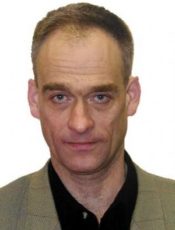On November 1, General Michel Aoun, the 81-year old retired general, former army commander and the head of New Patriotic Movement, was elected by parliament new president, ending a two-and-a-half-year power vacuum. The Lebanese presidency is reserved for a Maronite Christian in the country’s sectarian power-sharing system.
According to Lebanon’s unwritten «National Pact» of 1943, the President of the republic is always a Maronite Christian, the Prime Minister is always a Sunni Muslim, and the speaker of parliament is always a Shi‘a (Shiite) Muslim. Bilateral dialogues between opposing factions have helped reduce popular tensions among political parties and their respective Sunni and Shiite supporters.
Since former President Michel Suleiman stepped down in May 2014, Lebanon has been without a head of state as the fractured parliament had failed more than forty times to elect a new leader. Aoun will be Lebanon's 13th president since the country gained independence from France in 1943. His election means Lebanon will remain a stable country amid the tumultuous events in the Middle East.
In his inaugural speech, the president-elect vowed to increase bilateral cooperation with the Syrian government led by Bashar Assad on fighting terrorism. He also asserted that developing the capabilities of the Lebanese armed forces was his top priority, until it became a military able of protecting its own land.
President Aoun insisted that Lebanon must stay out of regional conflicts and follow an independent foreign policy in accordance with its interests. He also promised a preemptive fight against terrorism, in reference to Sunni Muslim jihadists, who have staged suicide attacks against Shi'ite targets and the army in Lebanon, and said camps hosting some 1.5 million Syrian refugees must not become militant hideouts.
The country is hit by the influx of more than one million Syrian refugees in addition to hundreds of thousands of displaced Palestinians.
The new Lebanese president supports the government of President Bashar Assad in Syria. It’s important that now the leaderships of Russia and Lebanon have similar views on the most pressing problem of the Middle East.
Russia is expected to be among the countries the new president will visit in the immediate future. After all, the USSR was one of the first countries to recognize Lebanon as an independent state. Moscow was a mediator and a stabilizing force when Lebanon was hit by the 1975-1990 civil wars.
According to Amal Abu Zeid, a member of the Lebanese political bloc Change and Reform, Russia and Lebanon will continue to maintain «strategic and promising» relations. There are prospects for cooperation on developing the oil and gas deposits recently discovered in Lebanon.
In 2013, Russia and Lebanon inked a memorandum of understanding on energy cooperation. Construction industry also presents opportunities for lucrative projects.
Former Lebanese prime minister and Future Movement leader MP Saad Hariri, expected to take office as new prime minister in a few days, visited Russia on October 4. During the meeting, Russian Foreign Minister Sergey Lavrov expressed «support» for Hariri’s efforts to end the deadlock related to the election of the head of state, stressing that the former PM is «playing an important role» regarding the domestic situations in Lebanon.
It was not the first time Lebanese ranking politicians visited Russia to solicit its help in overcoming the political deadlock. Last April Mr. Hariri visited Moscow to meet Russian President Vladimir Putin and ask Russia to mediate and help Lebanon find a way out of presidential impasse. After the talks, he said «We value the large role played by Russia in the region, and we look for you to have a role in Lebanon too».
With the Syrian civil war at its doorstep. Lebanon desperately needs a stronger military. Lebanese Finance Minister Ali Hassan Khalil visited Moscow in June to ask for military aid to bolster Lebanon’s efforts to fight terrorism. Lebanon has asked Russia to supply his country with Kornet anti-tank missile systems and T-72 main battle tanks and cannons.
Russia’s military aid may be especially welcome. In early March 2016, Saudi Arabia suspended its long-awaited aid package that Lebanon desperately needs to combat the terrorist groups trying to enter the country from Syria. The Lebanese Army has been using the same equipment since the early 80s. Their main armored vehicles are the M-113 APC and the M-60 MBT.
The Russia’s military operation in Syria was a crucial factor to protect Lebanon from being flooded by extremist groups invading it from Syria. Actually, Russia prevented the inevitable – the invasion of Lebanon by Islamic State forces. With the new president in office, Lebanon can join the coalition of Syria, Iran and some other actors supporting the Syrian legitimate government.
Russia and Lebanon are on the same page when it comes to the fight against jihadis and the situation in Syria. The election of Michel Aoun opens new opportunities for the Russia-Lebanon bilateral relations.









